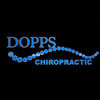Post-Sneeze Back Pain: Is It a Sign You Need a Chiropractor in Overland Park, Kansas?
- Dr. Rory Dopps

- Sep 11, 2024
- 4 min read

Have you ever sneezed and felt a sharp pain in your back? It could be more than just a simple strain. While sneezing may seem like a harmless action, it can put significant pressure on the spine, potentially leading to or worsening conditions like a herniated disc.
Understanding the link between sneezing and back pain can help you take proactive steps to protect your spine and prevent serious issues. Let's explore how sneezing affects the spine and how chiropractic care can help alleviate pain and prevent disc problems.
Understanding Herniated Discs
A herniated disc occurs when the inner gel-like core of an intervertebral disc pushes through a tear in its outer layer, compressing nearby nerves. These discs act as shock absorbers, maintaining spinal flexibility. However, when a disc herniates, it often leads to pain and discomfort, especially when nerve roots are compressed.
Symptoms of a Herniated Disc
Sharp, Shooting Pain: Often radiating down the leg (sciatica) or arm, depending on the location of the herniation.
Numbness and Tingling: Sensations in the limbs that indicate nerve compression.
Muscle Weakness: In severe cases, herniation can weaken the muscles along the affected nerve's path, leading to mobility issues.
The Link Between Sneezing and Back Pain
How Sneezing Affects the Spine
Sneezing generates a rapid increase in intra-abdominal and intrathoracic pressure, which is transferred to the spine. This pressure, especially in the lower back, can be significant enough to exacerbate an existing spinal issue or even lead to new problems such as a herniated disc.
Why Sneezing Can Trigger Back Pain
If you have poor posture or pre-existing spinal degeneration, sneezing can worsen the problem. The sudden pressure can push an already weakened or bulging disc further out, irritating nearby nerves. Poor posture during sneezing, particularly slouching, adds additional strain on the spine, increasing the risk of disc herniation.
Signs of a Herniated Disc After Sneezing
Persistent Pain: Sharp pain that doesn’t subside after sneezing, especially if it radiates down your leg or arm, could indicate a herniated disc.
Numbness and Tingling: Nerve compression caused by disc herniation can result in numbness or tingling in your limbs.
The Role of Chiropractic Care in Managing Herniated Discs and Post-Sneeze Back Pain
A chiropractor in Overland Park, Kansas can play a crucial role in alleviating herniated disc symptoms triggered by sneezing. Chiropractic care focuses on realigning the spine and relieving pressure on the nerves, which can significantly reduce pain and improve mobility.
Spinal Adjustments for Disc Health
Chiropractors use gentle spinal adjustments to realign vertebrae. This process helps reduce pressure on herniated discs and the surrounding nerve roots. Chiropractic care helps restore spinal function, reducing pain and improving mobility for individuals suffering from herniated discs.
Preventing Further Disc Damage
Chiropractic care not only alleviates current pain but also prevents future damage. Regular spinal adjustments maintain proper alignment, reducing the risk of flare-ups. Chiropractors also offer posture correction and core-strengthening exercises to help stabilize the spine, minimizing strain during everyday actions like sneezing.
Pain Management Without Surgery
Chiropractic care provides a non-invasive alternative to surgery for managing herniated discs. By addressing the root cause of the pain—spinal misalignment—chiropractic adjustments can reduce the need for invasive treatments and help patients avoid the complications that come with surgery.
Preventive Measures for Sneezing and Spinal Health
Posture Tips for Sneezing
Stand Tall: Before sneezing, stand up straight and engage your core muscles to reduce strain on your lower back.
Sit with Proper Alignment: If seated, ensure you're sitting upright with your feet flat on the floor, providing support to your spine during sneezing.
Core Strengthening and Stability
A strong core is essential for providing stability to your spine, helping prevent injuries during sudden movements like sneezing. Incorporate exercises such as planks and pelvic tilts to strengthen your core and protect your spine from herniated discs.
Nutritional Support and Supplementation
Supporting your spinal health with the right nutrition can help reduce inflammation and prevent future disc injuries.
Dietary Recommendations
Anti-inflammatory Foods: Incorporate foods like fish, flaxseeds, leafy greens, and nuts into your diet to help lower inflammation.
Hydration: Staying hydrated ensures that your intervertebral discs maintain their elasticity and ability to absorb shock.
Supplement Recommendation: Inflammatone™
Inflammatone™ contains a blend of herbs and enzymes that reduce inflammation, which is particularly beneficial when dealing with spinal disc injuries or inflammation-related back pain from activities like sneezing or coughing. It helps reduce pain, promotes healing, and supports long-term joint and spinal health.
Complementary Therapies and Lifestyle Adjustments
Exercise and Physical Activity
Engaging in low-impact activities such as walking and swimming promotes spinal health and reduces the risk of herniated discs. Additionally, gentle stretching exercises like hamstring stretches can alleviate sciatica symptoms and improve spinal mobility.
Posture and Ergonomics
Improving your posture and using ergonomic tools can protect your spine during everyday activities. For instance, using a lumbar support cushion while sitting can help maintain proper spinal alignment and reduce the risk of herniated discs.
Conclusion
Post-sneeze back pain may seem trivial, but it can be a sign of a more serious condition, such as a herniated disc. Sneezing creates significant pressure on the spine, and if you have poor posture or an existing spinal issue, it can lead to or exacerbate disc herniation.
Chiropractic care offers a non-invasive, effective way to treat and prevent herniated discs through spinal adjustments, posture correction, and core-strengthening exercises.
If you're experiencing back pain after sneezing, it’s essential to seek care. A chiropractor in Overland Park, Kansas can assess your spine, provide adjustments, and help relieve pain while improving your overall spinal health.
Call to Action
Are you experiencing back pain after sneezing? It could be more serious than you think. Visit doppskc.com to schedule an online consultation with Dr. Rory Dopps and learn how chiropractic care can help prevent and treat herniated discs, keeping your spine healthy and pain-free.




Comments